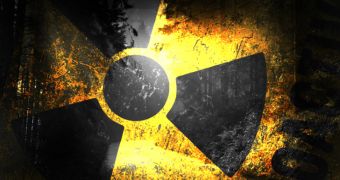This past February 25, Japan rolled out a new draft energy plan. This piece of news would have probably failed to get as much attention as it did if it were not for the fact that, according to this 20-year project, the country has not yet given up on plans to harvest nuclear power.
In fact, it would appear that said energy source is to remain of chief importance in Japan, and help the country have its electricity needs properly met, media reports say.
Business Green tells us that, not long before the meltdown at the Fukushima nuclear plant in March 2011, Japan announced that it was thinking about upping its share of nuclear power from 30% to 50%.
However, in the aftermath of the Fukushima disaster, not only were these plans dropped, but the country also took steps towards shutting down all the other nuclear reactors operating across its territory.
Otherwise put, the meltdown caused the country's nuclear power capacity, which accounted for about one third of the total electricity generation, to drop to zero.
For the time being, Japan's 48 nuclear reactors are still offline, and will only be granted permission to reopen once their operators prove that they can be used to generate electricity without endangering the environment or public safety.
By the looks of it, Japan's plans to restart its reactors need be linked to the fact that, the way Prime Minister Shinzo Abe sees things, a combination of nuclear, renewables, and fossil fuels is the best energy mix that the country can hope for, at least for the time being.
Thus, high officials in Japan explain that, although the country is taking steps towards upping its dependence on green energy sources, the fact remains that renewables, outside of hydropower, currently account for just 2-3% of its overall energy mix.
What's more, they say that, despite recent investments in harvesting such environmentally friendly energy sources, renewables are still a long way from becoming major contributors to Japan's overall power supply.
Therefore, it is mandatory that other power sources be given due consideration, Prime Minister Shinzo Abe, together with several others of the country's high officials, thinks.
Although nuclear is to remain an important electricity source in Japan, coal and hydropower are expected to be the star players of the country's energy generating industry.
However, fossil fuel imports are expected to be somewhat limited by the country's decision to restart its reactors and make the most of their energy generating capacity.

 14 DAY TRIAL //
14 DAY TRIAL //